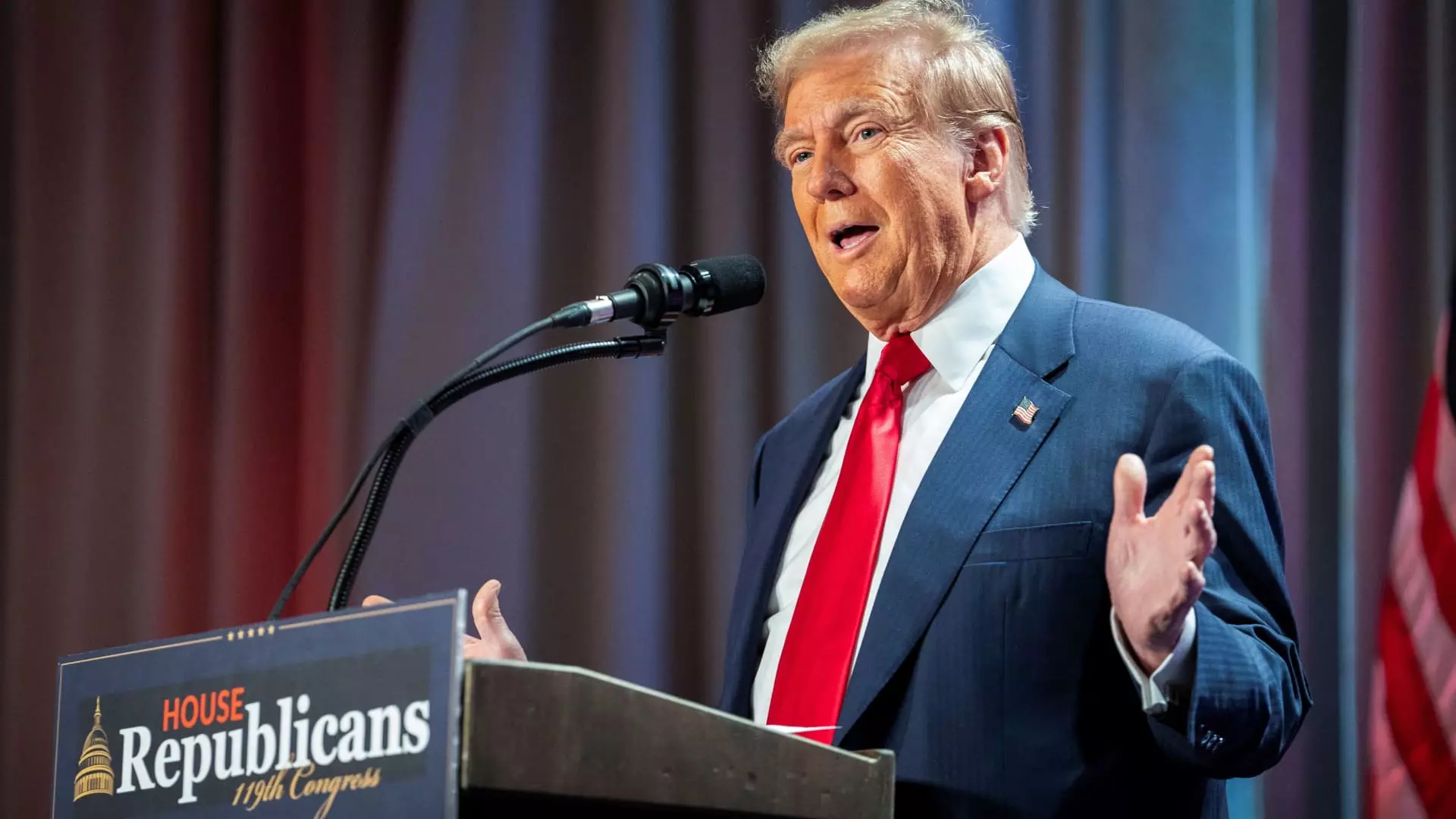In a significant development signaling the direction of U.S. energy policy, President-elect Donald Trump has announced his choice of Chris Wright—CEO of Liberty Energy and a fervent supporter of fossil fuels—for the post of Secretary of Energy. This decision not only raises eyebrows due to Wright’s lack of political experience but also poses questions about the future of energy strategy in light of pressing climate challenges.
Chris Wright, at the helm of Liberty Energy, a Denver-based oilfield services company, is known for his outspoken views on energy production and climate change. His career has been characterized by a strong emphasis on expanding the fossil fuel sector, which aligns with Trump’s vision to ramp up oil and gas production across the United States. Wright’s prior statements label climate change activists as alarmists and suggest that current efforts to combat global warming resemble authoritarian measures reminiscent of Soviet communism. Indeed, Wright declared in a LinkedIn video that “there is no climate crisis” while dismissing the notion of an energy transition, thereby framing the ongoing discourse on renewable energy as misplaced.
This rhetoric sets a potentially contentious tone for the Department of Energy, an agency crucial for managing U.S. energy policy and diplomacy, as well as overseeing federal energy programs. Such views could exacerbate the already significant polarization surrounding climate initiatives and contribute to a broader debate on the future of energy in America.
Should Wright gain Senate confirmation, he is likely to prioritize the interests of the fossil fuel industry. His approach would represent a stark contrast from his predecessor, Jennifer Granholm, who advocated for emerging renewable energy sources, including solar, wind, and geothermal technologies. Granholm’s tenure underscored a transitional effort towards cleaner energy, reflecting growing public concern over climate change.
Wright’s anticipated policies could embrace strategies to increase domestic oil and gas production, aligning with Trump’s mandate to replenish the Strategic Petroleum Reserve and enhance energy independence. Moreover, with the U.S. experiencing unprecedented levels of oil output, the role of fossil fuels in meeting the nation’s energy demands will likely come under scrutiny as more private companies utilize federal lands for drilling, sidelining governmental intervention.
Despite Wright’s bullish stance on fossil fuels, the U.S. is at a pivotal moment concerning energy consumption. For the first time in two decades, power demand is on the rise, driven by advancements in technology such as artificial intelligence, the proliferation of electric vehicles, and the burgeoning cryptocurrency market. This dramatic increase in demand poses complex challenges, necessitating a nuanced approach that balances traditional energy production with contemporary energy needs.
The expansion of nuclear power, often viewed as a viable alternative to fossil fuels, could also form part of Wright’s strategy. Although nuclear energy enjoys bipartisan appeal, it is accompanied by significant challenges relating to costs and regulatory hurdles that could impede swift action. As Secretary of Energy, Wright may need to confront these complicated issues while continuing to advocate for fossil fuel production.
Chris Wright’s potential appointment as Secretary of Energy heralds an era of divisive energy policy in the United States. By prioritizing fossil fuel production while taunting climate change narratives, Wright could further entrench divisions within the political landscape regarding energy sources. How the energy sector evolves under his leadership remains uncertain, particularly as the nation grapples with rising energy demands and a shifting global narrative around climate change. The path forward will demand vigilance from all stakeholders, as the implications of this appointment could reverberate through environmental policy, energy economics, and national security for years to come.


Leave a Reply